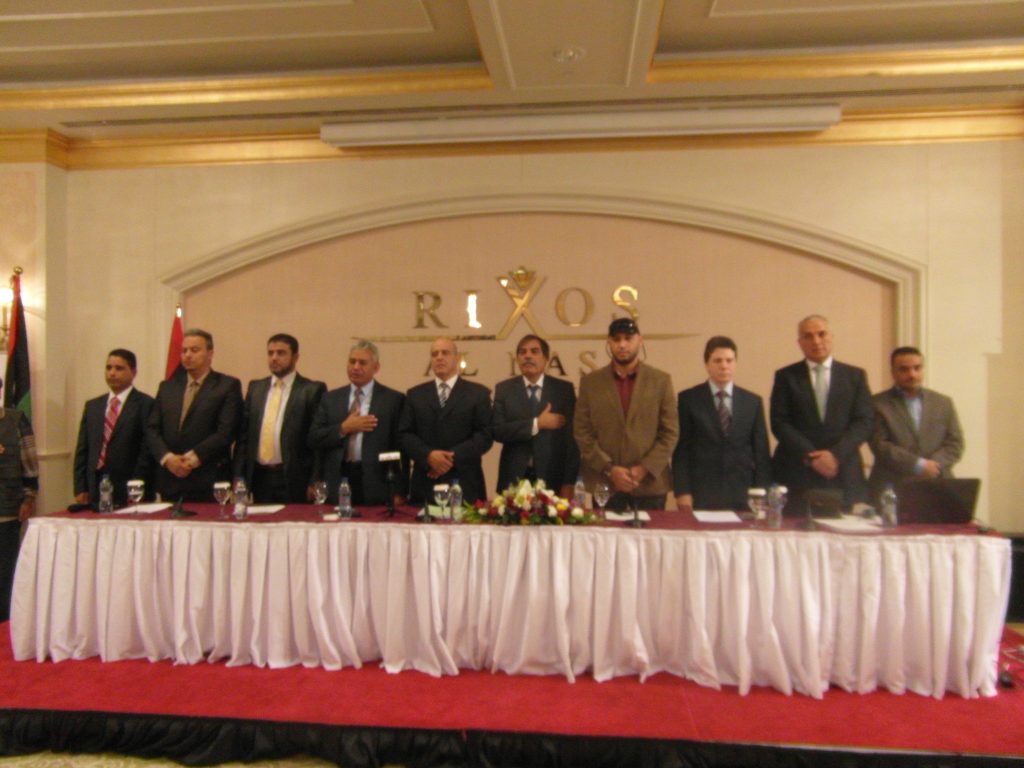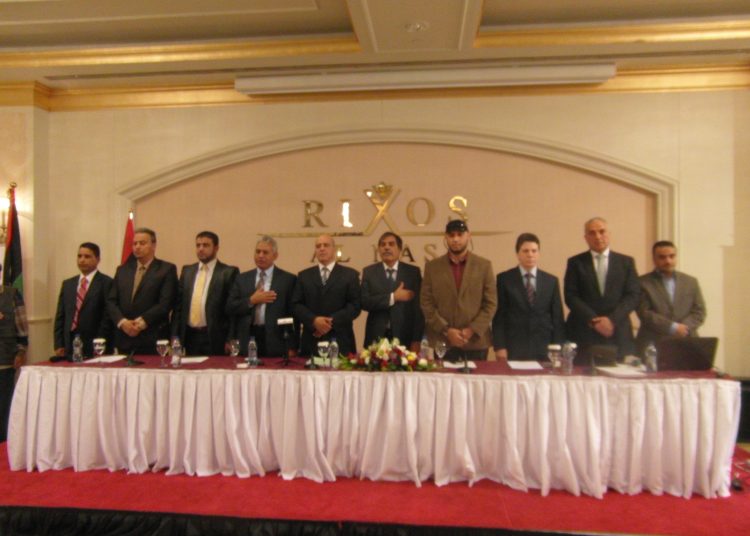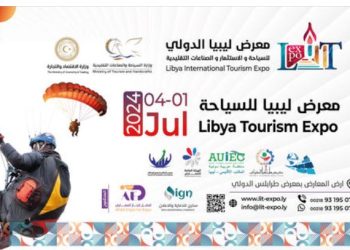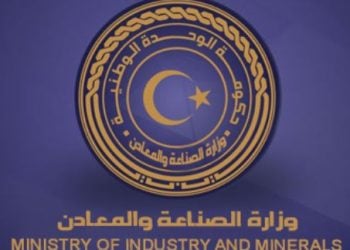By Sami Zaptia.

Tripoli, 18 November:
The Libyan Economic and Social Forum (LESF) held a one day conference on the ‘‘Libyan Warrior’s Economic . . .[restrict]and Social Vision’’ today at the Rixos Hotel in Tripoli.
This is the second recent event held by the Forum, having held one on the ‘Identity of Libya’s Economy’ in the middle of last month in Tripoli.
In keeping with the October event, today’s forum again had a star-studded line-up of politicians, warriors (thuwar or ex-fighters), business people, academics and NGOs.
It included Ali Tarhuni the former Finance and Oil minister, Mustafa Sagizly head of the Warriors Affairs Commission, Mehdi Harati former deputy head of Tripoli Military Council, Abdullah Naker former head of Tripoli Revolutionaries Council, leading businessman Husni Bey and Faraj Al-Sayah former Civil Society Minister under Mahmoud Jibril’ government and current head of the Social Solidarity Fund.
Opening the event, Mohamed Yousef, head of the Highway Service Company and general supervisor of the LESF, noted how services are the new industry to aim for in Libya. He pointed out that 73% of Switzerland’s economy is based on services. Citing numerous examples such as Malaysia and Singapore he highlighted the role of technology and informatics in the new developing economies.
‘’In a changing globalised economic world, Libya needs to build on a scientific basis and new outlooks. We need to reconsider our education and training system in order to build our human resources accordingly’’, Yousef stressed.
Mustafa Sagizly, head of the Warriors Affairs Commission (WAC), on the other hand, felt that Libya needed to hasten the process of disarming and demobilization. ‘’That is what I learnt from my visit to Kosovo where some of the armed groups refused to give up their arms. However, the real patriots united for the cause of their nation and were pivotal in taking the country forward’’.
Looking at the gathered before him in the hall, he said ‘’I see those patriotic leaders sitting before me today – we need to work together. This is the role of WAC. Disarming can be done by force or in a positive manner by giving the former fighters a role and a chance to play a part in the economic and social construction of Libya. They should be at the centre of this rebuilding effort’’.
‘’At WAC, we have started this effort by interviewing tens of thousands of former fighters and creating a database. We have proposed numerous plans to the governments to help enroll the former fighters into civilian life by, for example, helping them create their own small businesses’’.
‘’They will also need training, retraining and rehabilitation – economically and psychologically as a result of their war experiences. The warriors want to participate in building Libya – but they need help. They need the door to be opened for them by the authorities’’.
Mohamed Ben Yousef, General Manager of the Libyan Foreign Bank, went straight to the heart of the matter of the present Libyan scenario when he said that ‘’Safety and security is the first step in creating a future economic and social vision for Libya – for health, for education and for the state as a whole. We need sustainable development beyond oil and the first step to that is to correct the distortions in the economy such as subsidies, decentralization and privatization and the encouragement of loans and small business’’.
Mehdi Al-Harati, said that the ‘’priority in economic and social development should be given to the fighters and their families and those injured from the war effort. They should have their rightful place in the state and the building and the nation-building’’.
‘’They were forced to fight even though – as it says in the holy Koran – it is something we as beings hate. There is a gap between the fighters and politicians. There is much talk but no action by the politicians – just words. We need to move from words to work and real action now’’, he concluded. [/restrict]










